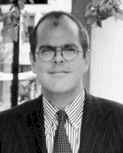

"Americans do
not love liberty...."
 |
FØRSTE KVARTAL 2003: 10.marts |
|
6:9
Photo Credit: US Fish and Wildlife Service
|
Voters To the Middle, Parties To the Extremes
HB: It does seem convincing that there is a connection between the material set-up of society and how people think about it. We were talking about the overlapping circles as different conceptions of politics. What’s the difference between the American Right and the European Rights – in terms of ideas, vitalism, organization or style?
CC: Oh, well, there is an obvious one. We lack a royalist Right. There is no nostalgia for a king or an established church or anything like that. There is no Maurrassian Right. We have a Christian Right, but you know Europe did too until quite recently. A lot of people would say that what we call the Christian Right is really just a renaming of the old segregationist Right – I don’t believe that’s true. I think it is a reaction to the American style of regulatory socialism. That’s a long topic. I don’t know how much our Right is really a Right. I think it is mostly liberal.
HB: So the American political scene is dominated by different kinds of liberalism?
CC: Yeah, it is liberalism combined with social conservatism. But I don’t really call that a Right. The left likes to paint it as a Right. But I don’t see any summons to authority: it is all very democratic. I don’t say we’re immune to authoritarian appeals. I just don’t think that the Right as presently constituted is really a Right. It is like a European – maybe it is a little broader than the European centrist consensus – but I would say that we have less of a Right than Europe does. Because it is sort of captured and diluted by the parties. The national front in France, which exists outside of the power sharing agreement that applies to the other 85% of the country, can develop a pretty distilled and purist rightwing ideology. But I don’t see that tendency in the Republican Party. Now if we had a different constitutional system, if we had proportional representation, these parties could maybe emerge.
HB: Whenever we have the primaries, it is a question that pops up because of the constellation of registered voters for each party: here the religious Right weighs in so much more than normally, and hence Bush’s visit to Bob Jones University.
CC: That is a perverse function of the gravitation towards the center. The party affiliation of Republicans or Democrats used to cover around 95% of the voters. But there’s been a big growth in independent voters over the years and that is partially because people find themselves in the middle. When they do find themselves in the middle and begin voting for the Republicans one year and the democrats another year then they say: “I’m not going to support these guys, I am an independent”. I myself am an independent. That disqualifies you in most states from voting in the primaries. So the parties – which, before, would each cover a whole section from center out – start to shrink from the middle out and they keep shrinking.
The center thus keeps getting bigger and bigger, but it consists of people who are disqualified from voting to choose the candidates. So Election Day comes, and these people have to choose between two extremes. It is a problem. I think I would have preferred McCain to Bush for the most part because I prefer his electorate. So yes, the Christian Right and the gun owners do control the Republican Party – but you know, homosexuals and blacks control the Democratic Party. If you like to pollute a lot you like the Republicans and if you commit a lot of violent crime you like the Democrats! I don’t know…

foto: Weekly Standard